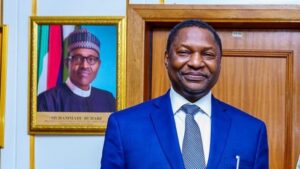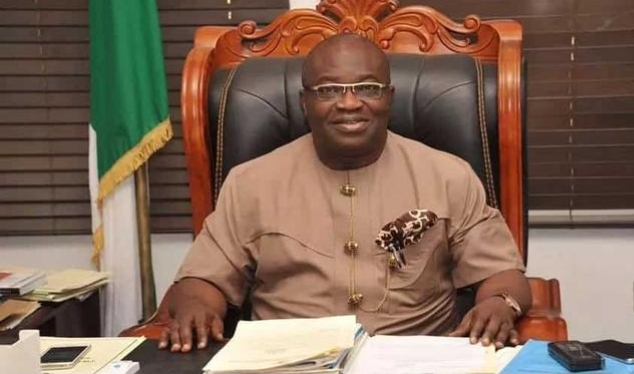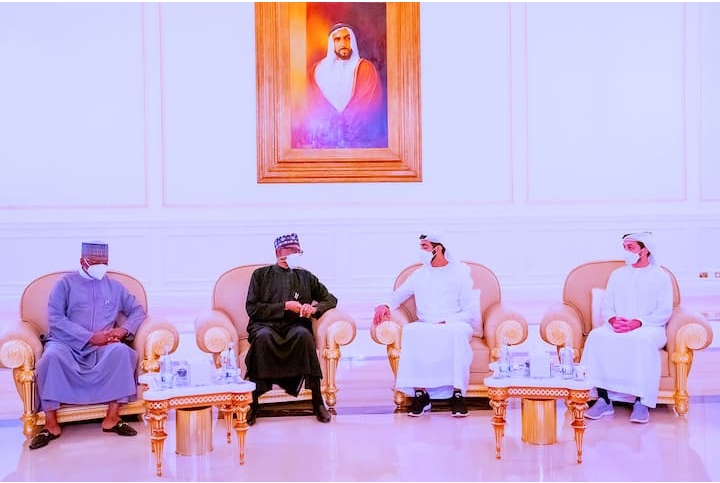
Whistle-blowing policy in Nigeria is an anti-corruption initiative of the federal ministry of finance, which encourages citizens to voluntarily disclose information about fraud, bribery, looted government funds, financial misconduct, government assets and any other form of gratification or theft to the anti-graft agencies.
The policy, which was launched on December 21, 2016, by the Federal Government and facilitated through the Ministry of Finance, says: “A whistle blower who provides information about any financial mismanagement or tip about any stolen funds to the ministry’s portal will be rewarded or entitled to between 2.5 per cent and five per cent of the recovered funds.
Report has it that within the first two months of the whistle-blowing policy, the Federal Government recovered over $178 million that were stolen from the public coffers. By June 5, 2017, the Federal Ministry of Finance had received a total of 2,150 tips from the public. 128 tips came through the website of the ministry, 1,192 were through phone calls, 540 through SMS and 290 through emails to the ministry. By July/August, 2017, a total of 5, 000 tips were received.
It is interesting to note that a whistleblower is a person who exposes any kind of information or activity that is deemed illegal, unethical or not correct within an organisation that is either private or public. The information of alleged wrongdoing can be classified in many ways: violation of company policy/rules, laws, regulation or threat to public interest/national security as well as fraud and corruption.
However, the whistle blower’s major challenge is the fact that corruption will naturally fight back as the blower is up, most times, against the high and mighty in the society. So, this has made some intended whistle blowers develop cold feet in reporting glaring theft in public or private institutions. To protect whistle-blowers, some civil society organisations have engaged in a number of advocacies to ensure that people who blow whistle are protected. MacArthur Foundation is currently funding the African Centre for Media and Information Literacy (AFRICMIL) to launch a whistle-blower campaign known as ‘Corruption Anonymous’.
The African Centre for Media and Information Literacy (AFRICMIL), a non-governmental organization that focuses on media, information, research, advocacy and training is currently making frantic moves to build public confidence and support the whistleblowing policy of the government of Nigeria with its CORA project.
Speaking at a one-day media workshop for journalist on whistleblowing and whistleblower protection put together by the organisation, AFRICMIL coordinator, Chido Onumah, said the project began by engaging three major planks, which include creating awareness and sensitising the public to the importance of whistleblowing as a tool for fighting corruption and checking other forms of wrongdoing in the society, advocating honest implementation of the policy, and ensuring effective protection for people who are courageous enough to blow the whistle.
“In a bid to ensure a successful implementation of the CORA project, AFRICMIL has built strategic alliances with relevant stakeholders like the Presidential Initiative on Continuous Audit (PICA), a unit in the Federal Ministry of Finance, Budget & National Planning, that is charged with the responsibility of managing the whistleblowing policy, anti-corruption agencies, civil society organisations, a coalition of public interest lawyers and, of course, the media,” Onumah said.
Also, at a capacity building workshop for lawyers on protection for victimised whistleblowers held in Abuja, Onumah said protection of the whistleblower is key to the survival of the whistleblowing policy, maintaining that if people are not assured of their protection, there is no way they will come out to blow the whistle.
He said AFRICMIL is engaging with lawyers, taking them through international good practice about whistleblower protection and also hearing from them on what they can do as citizens to support the whistle blowing policy, whether in providing support, pro bono services for whistleblowers or advice for whistleblowers on how they should go about engaging with the process.
His words: “Our expectation is that we will form a coalition of pro bono lawyers who will support whistleblowers. What services lawyers can provide; what kind of advice lawyers can provide? Then beyond the protection of whistleblowers, what kind of contributions lawyers can make so that at the end of the day, we have a robust civil society regime in Nigeria?
“Protection is not just for whistleblowers alone, but for their families and loved ones because if a fellow blows the whistle, gets exposed and runs away, they can target his or her spouse, husband, wife, uncle, children and aunties. Protection is all encompassing, such that whoever blows the whistle, the state and relevant institutions must provide the requisite protection.”
Onumah further said another issue affecting the whistleblower policy is that of compensation, stressing that the government must respect the issue of compensation to encourage more people to come out and expose acts of corruption.
“Whether we like it or not, the payment of compensation is part of the whistle blowing policy and we hope that eventually, when the law is passed, it will be part of it. Once it is part of that policy or law, you have to respect that. It is not for you to second-guess people. People have the right to say that it is because of the money they want to blow the whistle, because that’s what the law says.
“The law says when you blow the whistle and money is recovered, you get a certain percentage. Attention to whistleblowing is dwindling over time and that is part of the challenge but another side of the challenge is advocacy around the whole whistle blowing policy,” he added.
Director, MacArthur Foundation, Kole Shettima, said lawyers play a very critical role in the whistleblower policy because at the end of the day, whistle blowers might be taken to court and they will need their support.
“We need their experience and knowledge to protect those who may not have the resources to protect themselves. I think that legal support and protection for those who are blowing the whistle is very critical and important,” he said.
Mr. Aaron Kasse, who blew whistle against a former chairman of the Police Service Commission (PSC), Mr. Mike Okiro, lamented that there are no mechanisms on ground to protect whistleblowers at the moment, adding that there is no legislation on the policy, while the Presidential Initiative on Continuous Audit (PICA) has no such structures yet.
He said his journey began in 2014 when an NGO called Right To Know (R2K) in collaboration with the Police Service Commission organised a two-day workshop to enlighten staff of the commission on the provisions of the Freedom of Information Act, 2011. He said two sections of the FoI Act stuck in his memory after the training.
“But even before President Buhari was sworn-in, the PSC as a build-up to the 2015 general elections, as it is customary with its operations, monitors police conduct during elections. It was in line with pursuing this mandate that the former leadership of the commission decided to cash in on the opportunity to siphon government funds.
“Several letters soliciting for financial assistance were sent out by the commission to government agencies, corporate organisations, NGOs and highly placed individuals to fund this national assignment, despite a budgetary approval already in place.
“However, I became aware that a response for this financial assistance came from the office of the National Security Adviser to the tune of N350 million. With the huge cash in the hands of the PSC, twice the estimated monitoring budget, they sat and devised dubious means of stealing the money,” Kasse revealed.
Armed with the facts and a host of other dubious financial manipulations of the former chairman, which he knew of, working closely with him as head of protocol, Kasse took a dangerous but patriotic decision of writing a detailed and evidence-based petition and submitted it to the ICPC and EFCC on May 21, 2015. This decision did not however come easy.
He was arrested, hurriedly suspended from work without pay, through a letter backdated to the day he submitted the petition. “These events were not happening in isolation. They were followed with threat messages and phone calls, strange people stalking me and peltering my house with stones at midnight. It is also instructive to note that complaint letters to the Inspector-General of Police and the DG of DSS over threat to my life elicited no response.
“By the grace of God, a day after I returned to work in March, 2018 after my victory at the National Industrial Court, the trumped up criminal charges against me were dismissed by the Federal high Court and I was acquitted with the Judge having strong words of warning to the police prosecutors not to be fishing for evidence to witch hunt people,” he said.
An Abuja based lawyer, Kadiri Maxwell, in his opinion said looking at the existing legal or policy framework, there is n Director, MacArthur Foundation, Kole Shettima o level of protection for whistleblowers. According to him, Nigeria has no maximum protection for whistleblowers as their lives, safety and liberty become endangered.
“In an ideal circumstance, a whistle blower should be able to enjoy maximum protection if their lives or that of their loved ones, relatives or associates get threatened. In the Nigeria context, if you look at the existing legal or policy framework, that level of protection is not there. That is an entry point to say we do not have maximum protection for whistleblowers where their lives, safety and liberty of their persons become endangered,” he declared.
The joy of every genuine whistle blower is to see the perpetrators punished. The momentum dies down when often, the reverse becomes the case and the blower becomes the one who suffers the punishment, a scenario, which affirms the fact that corruption can fight back if not properly confronted.
Despite corrupt practices going on in different sectors of the country, citizens are no longer blowing the whistle. Observers are asking if the momentum can die under the administration that started the policy, will it out-live 2023?
A MUST TO READ
For your Advert Placement, Publicity, Press Release, Personality Promotion, Special Report, Featured story, Conference, Interviews, And So On – CONTACT US on WhatsApp/Call📞@ 08072633727 📲
NOTE: We wish to add you to our WhatsApp Database to get our Trending, latest and timely news directly into your WhatsApp Box as the news breaks.



